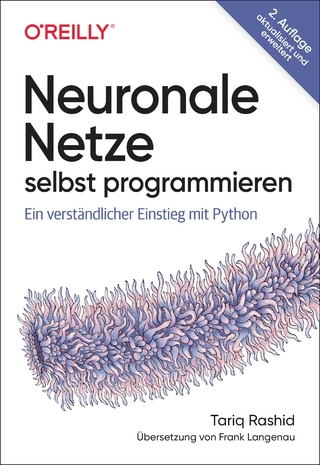Introduction to Computational Social Science
Principles and Applications
Seiten
2014
|
2014 ed.
Springer London Ltd (Verlag)
9781447156604 (ISBN)
Springer London Ltd (Verlag)
9781447156604 (ISBN)
- Titel erscheint in neuer Auflage
- Artikel merken
Zu diesem Artikel existiert eine Nachauflage
This effective introduction to the key concepts in computational social science includes formal definitions and a glossary, covers topics such as information extraction, social networks and complexity theory, and discusses a range of methodological tools.
This reader-friendly textbook is the first work of its kind to provide a unified Introduction to Computational Social Science (CSS). Four distinct methodological approaches are examined in detail, namely automated social information extraction, social network analysis, social complexity theory and social simulation modeling. The coverage of these approaches is supported by a discussion of the historical context, as well as by a list of texts for further reading. Features: highlights the main theories of the CSS paradigm as causal explanatory frameworks that shed new light on the nature of human and social dynamics; explains how to distinguish and analyze the different levels of analysis of social complexity using computational approaches; discusses a number of methodological tools; presents the main classes of entities, objects and relations common to the computational analysis of social complexity; examines the interdisciplinary integration of knowledge in the context of social phenomena.
This reader-friendly textbook is the first work of its kind to provide a unified Introduction to Computational Social Science (CSS). Four distinct methodological approaches are examined in detail, namely automated social information extraction, social network analysis, social complexity theory and social simulation modeling. The coverage of these approaches is supported by a discussion of the historical context, as well as by a list of texts for further reading. Features: highlights the main theories of the CSS paradigm as causal explanatory frameworks that shed new light on the nature of human and social dynamics; explains how to distinguish and analyze the different levels of analysis of social complexity using computational approaches; discusses a number of methodological tools; presents the main classes of entities, objects and relations common to the computational analysis of social complexity; examines the interdisciplinary integration of knowledge in the context of social phenomena.
Dr. Claudio Cioffi-Revilla is Professor of Computational Social Science, founding and former Chair of the Department of Computational Social Science and founding and current Director of the Center for Social Complexity at George Mason University, VA, USA.
Introduction
Computation and Social Science
Automated Information Extraction
Social Networks
Social Complexity I: Origins and Measurement
Social Complexity II: Laws
Social Complexity III: Theories
Simulations I: Methodology
Simulations II: Variable-Oriented Models
Simulations III: Object-Oriented Models
| Reihe/Serie | Texts in Computer Science |
|---|---|
| Zusatzinfo | 12 Tables, black and white; 21 Illustrations, color; 38 Illustrations, black and white; XXXIII, 320 p. 59 illus., 21 illus. in color. |
| Verlagsort | England |
| Sprache | englisch |
| Maße | 155 x 235 mm |
| Gewicht | 733 g |
| Themenwelt | Informatik ► Datenbanken ► Data Warehouse / Data Mining |
| Informatik ► Grafik / Design ► Digitale Bildverarbeitung | |
| Mathematik / Informatik ► Informatik ► Theorie / Studium | |
| Mathematik / Informatik ► Mathematik ► Graphentheorie | |
| Sozialwissenschaften ► Soziologie ► Empirische Sozialforschung | |
| Schlagworte | Complexity theory • Computational Social Science (CSS) • social data mining • Social Geographic Information Systems (SocioGIS) • social network analysis • social simulation |
| ISBN-13 | 9781447156604 / 9781447156604 |
| Zustand | Neuware |
| Informationen gemäß Produktsicherheitsverordnung (GPSR) | |
| Haben Sie eine Frage zum Produkt? |
Mehr entdecken
aus dem Bereich
aus dem Bereich
Ein verständlicher Einstieg mit Python
Buch | Softcover (2024)
O'Reilly (Verlag)
CHF 41,85
eine Einführung mit Python, Scikit-Learn und TensorFlow
Buch | Softcover (2024)
O'Reilly (Verlag)
CHF 27,85





